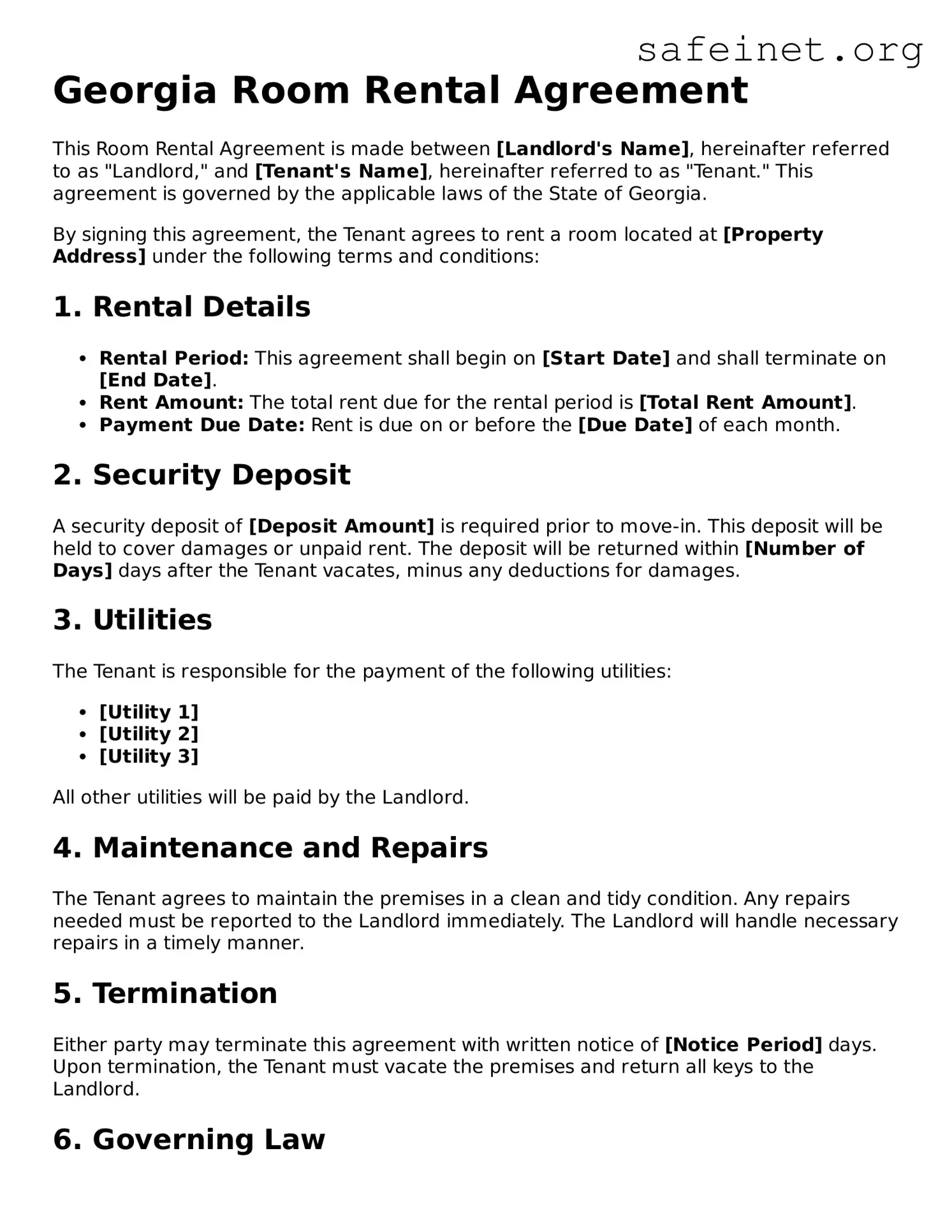Georgia Room Rental Agreement
This Room Rental Agreement is made between [Landlord's Name], hereinafter referred to as "Landlord," and [Tenant's Name], hereinafter referred to as "Tenant." This agreement is governed by the applicable laws of the State of Georgia.
By signing this agreement, the Tenant agrees to rent a room located at [Property Address] under the following terms and conditions:
1. Rental Details
- Rental Period: This agreement shall begin on [Start Date] and shall terminate on [End Date].
- Rent Amount: The total rent due for the rental period is [Total Rent Amount].
- Payment Due Date: Rent is due on or before the [Due Date] of each month.
2. Security Deposit
A security deposit of [Deposit Amount] is required prior to move-in. This deposit will be held to cover damages or unpaid rent. The deposit will be returned within [Number of Days] days after the Tenant vacates, minus any deductions for damages.
3. Utilities
The Tenant is responsible for the payment of the following utilities:
- [Utility 1]
- [Utility 2]
- [Utility 3]
All other utilities will be paid by the Landlord.
4. Maintenance and Repairs
The Tenant agrees to maintain the premises in a clean and tidy condition. Any repairs needed must be reported to the Landlord immediately. The Landlord will handle necessary repairs in a timely manner.
5. Termination
Either party may terminate this agreement with written notice of [Notice Period] days. Upon termination, the Tenant must vacate the premises and return all keys to the Landlord.
6. Governing Law
This agreement shall be governed by and construed in accordance with the laws of the State of Georgia. Any disputes shall be resolved in the appropriate courts of Georgia.
7. Signatures
By signing, both parties acknowledge that they understand and agree to the terms of this Room Rental Agreement.
Landlord: _______________________________ Date: _______________
Tenant: _________________________________ Date: _______________
